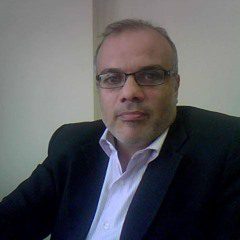On the evening of Tuesday 9 November, Turkish warplanes targeted separatist elements of the Syrian Democratic Forces (SDF) in the Syrian city of Qamishli. The drone attack is not the first of its kind in the city, as it was preceded by similar attacks in the city and Ain Al-Arab (Kobani) before it.
The repeated attacks in the city of Qamishli carried strong indications confirming Turkey’s endeavour to expand the scope of its operations east of the Euphrates, and to move forward with its military operation by seizing control from the separatist SDF forces on Tal Rifaat, Manbij, Ayn Al-Arab (Kobani), and Malikiyah in the future.
Despite US support and Russian political and military manoeuvres, Turkish military activity continued to target Kurdish separatists, led by PKK activists in Qamishli. This activity was not deterred by the American support and the solidarity visits of Bernard-Henri Levy, the Zionist orientalist and French academic, to the areas controlled by the separatists east of the Euphrates.
The notorious Levy met the leader of the separatist organisation, Mazloum Abdi, on 3 October, and declared his support for the separatists and the separatist Rojava forces, after which he was quoted in a tweet saying the separatist leaders were “Somewhere in #Rojava. On my right, a legendary general, Mazlum Abdi Kobane. He is commander-in-chief of the Syrian Democratic Forces. And he has the dreadful honour of being Erdogan’s No. 1 enemy”. This visit did not anger Turkey or the Syrian regime as much as it angered Russia, which it considered a direct refusal by the separatist leaders to negotiate with Moscow and an acceptance of the American and European agenda.
My new book, The Will To See, released this month in the UK & US. Among many stories, you will find my trip to #Rojava, my meeting w/heroic General #Kobane & how I connected him, from his bunker, to Pres. #Macron. #Kurds #SDF @justice_4_kurds @YalePress https://t.co/Wwv8nC3GVk pic.twitter.com/QFDbwcN2DB
— Bernard-Henri Lévy (@BHL) October 3, 2021
Turkey was not hindered by the Russian military moves in the city of Qamishli, after Moscow reinforced its presence at the city’s airport with Su-35 aircraft on 28 October. This coincided with the Turkish Parliament extending the mandate granted to President Recep Erdogan for two additional years to send troops to Iraq and Syria on 26 October, and Russia wanted to remind Turkey of its influence and military presence and the need to take into account its interests in the city.
Despite the military reinforcements and manoeuvres that Russia conducted near Aleppo, Idlib and Qamishli, the Russian position on the Syrian Democratic Forces remained indecisive due to the preference of the SDF and its separatist factions to cooperate with the US. This indecisiveness opened the door wide for more Turkish moves. According to its Foreign Minister Sergey Lavrov, Russia criticised Washington on Tuesday by saying, “The United States’ support for separatist tendencies in northeastern Syria may make the Kurdish problem topical not only for Syria but for other countries of the region.”
READ: The US is pushing Turkey into Russia’s arms
Lavrov not only criticised the US, but also warned the separatist Kurds, in a press conference after talks with the Secretary for Relations with States within the Holy See’s Secretariat of State, Paul Richard Gallagher, by saying: “I would recommend the Kurds not be lured by our American colleagues who are seeking to nourish separatist tendencies in eastern Syria and make these plans a serious irritator targeted against the interests of preserving Syria’s integrity.” He added: “These are dangerous games that may lead to a situation when the Kurdish problem blazes up in the entire region, bearing in mind that it concerns not only Syria but other countries as well.”
The American activity east of the Euphrates and the separatist Kurds’ adherence to the American ally at the expense of the Russian ally opened the door for Ankara to proceed with its military operations against the separatists. The Turkish military pressure could escalate into a larger military operation that ends the separatist presence in Ayn Al-Arab, Ain Issa and its surroundings in the near future. This advancement could weaken the American agenda while enhancing the influence of Russia and the Syrian regime east of the Euphrates at the expense of the existing alliance between the separatist Kurds and the US. Turkish pressure on the separatists serves the interests of the Turks, the Arabs, the Syrian regime and Russia at the same time.
The Turkish raids weakened the Kurdish separatist presence and strengthened the Syrian and Russian presence, after the relationship between the Syrian army and SDF forces entered a dangerous phase that led to an escalation of confrontations between the two parties over the past few months. This success was achieved without clashing with America and its allies. the Turkish air raids are preparing the atmosphere for a decisive Turkish intervention in northern Syria to end the Russian indecisiveness towards the Kurdish separatist project and at the same time weaken its American financiers and the regional powers behind them hiding behind the veil of confronting Iran and terrorism and defending the unity of Syria and its lands.
This article first appeared in Arabic in Arabi21 on 10 November 2021
The views expressed in this article belong to the author and do not necessarily reflect the editorial policy of Middle East Monitor.


![A member of the Syrian Democratic Forces (SDF) stands on the side of a road as A US military vehicle drives, east of the Kurdish-controlled northeastern Syrian city of Qamishli on November 13, 2019 [DELIL SOULEIMAN/AFP via Getty Images]](https://i0.wp.com/www.middleeastmonitor.com/wp-content/uploads/2021/03/GettyImages-1182143722-scaled-e1616496424267.jpg?fit=1200%2C800&ssl=1)









